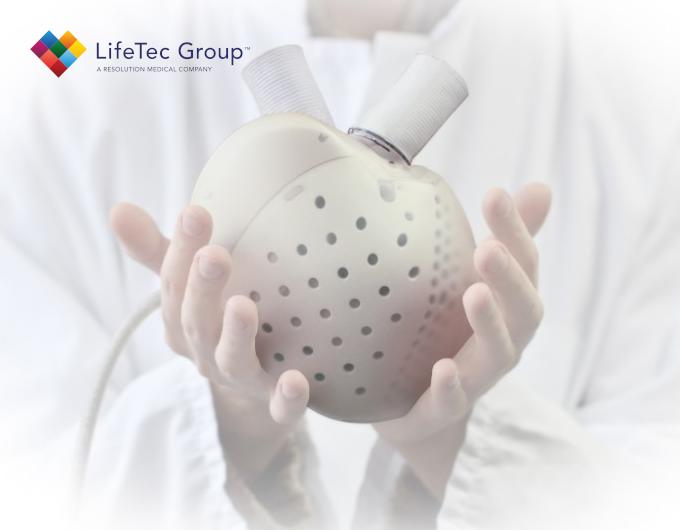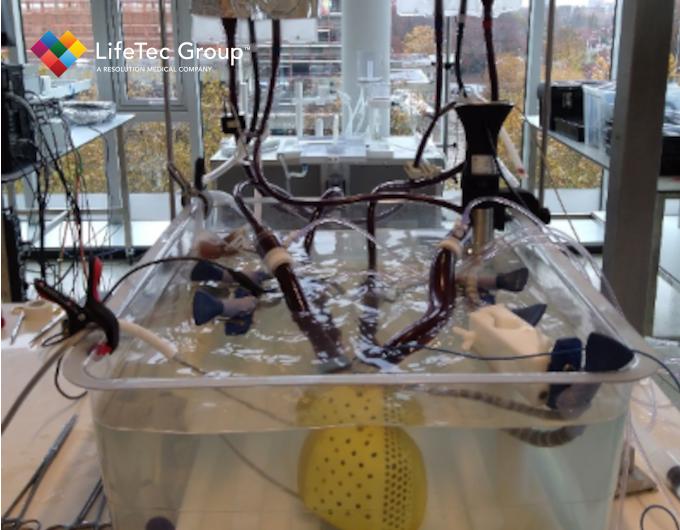The quest
Carmat is the designer and developer of the world’s most advanced total artificial heart. With this product, they aim to provide a therapeutic alternative for people suffering from end-stage biventricular heart failure.
In their quest to initiate clinical trials in the USA, an Investigational Device Exemption (IDE) was applied for at the US Food and Drug Administration (FDA).
FDA requested an ex-vivo assessment of potential blood damage that this device might incur in comparison to existing devices already on the market.

The platform
Since there is no clear and full experimental test environment for blood damage, it is not straightforward to collect such data.
However, Carmat had observed that LifeTec Group™ has a rather similar model that might be used for this purpose: the PhysioHeart™ platform is a beating heart platform that runs on blood and the beating heart might be exchanged for the Carmat device to at least partially study blood damage.
Furthermore, Ventricular Assist Devices (VAD’s) had already been applied in the PhysioHeart™ platform, and therefore comparative data might be collected.
And so, Carmat contacted LifeTec Group™ with the request to support them in performing ex-vivo experiments in order to obtain the missing data.
What was done
A full analysis of blood damage and damage markers was not really feasible, but determining hemolysis generated by the Carmat device (which is one of the important aspects needed to prove the hemocompatibility of the prosthesis) was determined to be possible.
LifeTec Group™ was able to develop a test platform with a minimal blood volume and minimal surface area but incorporating a complete full-blood circulation model in which Carmat’s total artificial heart as well as competitive devices could be incorporated.
For each of the experiments, fresh whole blood of slaughterhouse pigs was obtained and blood samples were taken at different time points covering the total experimental duration of 6 hours from which the rate of hemolysis over time could be obtained.

Approval for clinical feasibility study
During the IDE review process, Carmat has carried out additional tests and provides all results to the FDA, specifically relating to the biocompatibility of the cardiac prosthesis.
At February 5th 2020, CARMAT announces FDA full approval to initiate US clinical feasibility study of its total artificial heart. Sufficient data was provided to support the initiation of a human clinical study in the US. The Early Feasibility Study (EFS) protocol includes 10 transplant-eligible subjects limited to a network of 7 US renowned institutions. CARMAT also obtained conditional approval from two Institutional Review Boards (IRB) and this full FDA approval enables the company to accelerate the discussions with the other IRB and research contract offices at the 7 sites.
